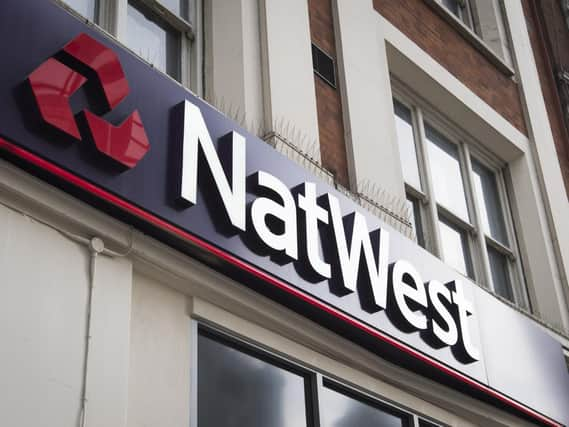NatWest swings into profit after lower-than-expected impairments


The company, which owns the Royal Bank of Scotland, said on Friday that pre-tax profit had hit £355 million in its most recent quarter, against the £75 million forecast loss.
Last year the bank lost £8 million over the same three-month period.
Advertisement
Hide AdAdvertisement
Hide AdChief executive Alison Rose said: “These results demonstrate the resilience of our underlying business and the strength of our balance sheet in the face of significant continued uncertainty.
“Our sector-leading capital position, strong levels of liquidity and consistent approach to risk mean we can continue to provide our customers and communities with the support they need.”
The bank was helped into the black by lower-than-expected impairment charges of £254.
Banks take impairment charges to account for money they have lent but do not expect to get back. Impairments are a part of everyday banking, but often rise during economic downturns, such as that caused by Covid-19.
Advertisement
Hide AdAdvertisement
Hide AdNatWest had been predicted to report impairments worth £628 million.
The new report means that impairments will come in at the lower end of NatWest’s own predictions of £3.5 billion to £4.5 billion.
Ms Rose added: “Although impairments were relatively low in the quarter and we have seen some positive trends across our customer base, the full impact of Covid-19 remains very unclear.
“Challenging times lie ahead, especially as the current government support schemes come to an end and as new Covid-19 related restrictions are introduced.”
Advertisement
Hide AdAdvertisement
Hide AdThe bank reported that it had paid £90 million in redundancy costs, £223 million in strategic costs, a £21 million property charge, and £34 million on technology.
Dan Lane, an analyst at Freetrade, said a struggling economy could end up hitting the banks.
On Thursday, the International Monetary Fund (IMF) downgraded its UK economic forecast, expecting it to shrink by 10.4% this year, and only regain 5.7% in 2021.
Mr Lane said: “There have been much lower provisions set aside for bad loans generally in the sector but if unemployment does spike after the Government’s extended support schemes finish, those loans could sour considerably – and take a chunk of the balance sheet with them.
“It could get a lot worse before it gets better.”
Comment Guidelines
National World encourages reader discussion on our stories. User feedback, insights and back-and-forth exchanges add a rich layer of context to reporting. Please review our Community Guidelines before commenting.